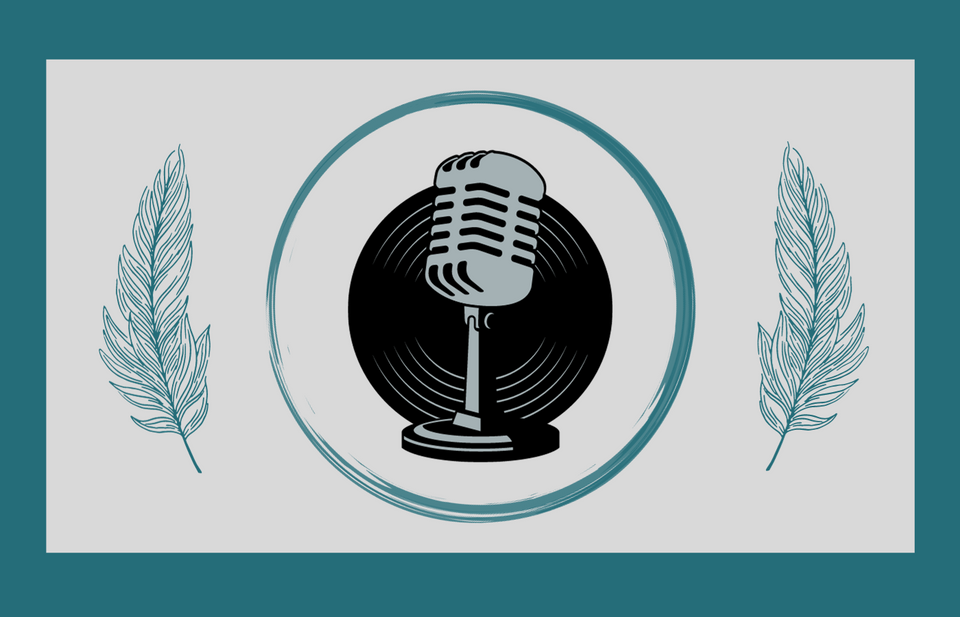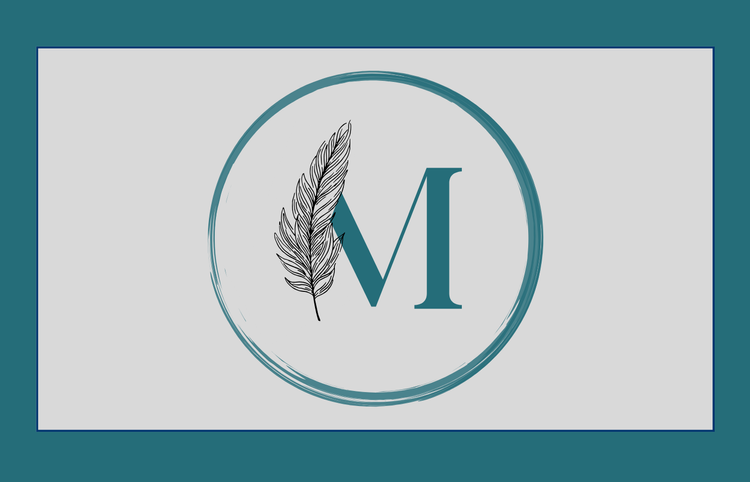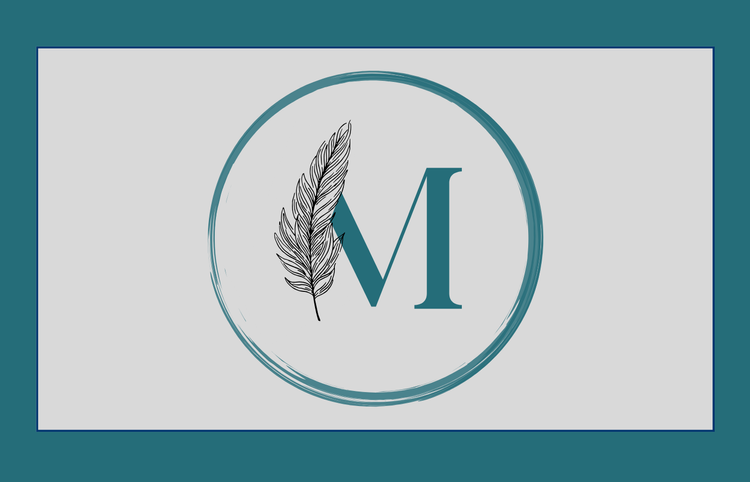Magpie Journals #7: What in the Podcast?

Go on this journey with me, my friends. Inspired by Tom Webster's article Making the Case for Podcasting - this is a slightly different journal. Special shout out to my friend Nicki for editing this a few times and challenging me. - Thank you for forever - Keelin.
I’ve been kicking around this idea of podcasting as a primary or secondary source of media for what feels like years. Podcasting as primary media means someone seeks out podcasting as a main source of entertainment. Podcasting as secondary means that someone seeks out podcasting as a supplemental source of entertainment. Usually, what I mean by secondary is that their podcasts hyper-focus on a specific topic, rather than a podcast for the sake of audio storytelling. They pick up a podcast because it will give them more insight into a media they are already interested in; be it a celebrity, a television show, or that really interesting something they want more information on.
I see podcasting as a secondary media, not as a problem, but as a frustration. People don’t see podcasting as the primary option. It doesn’t occur to them. When there are so many good ones, I am flabbergasted. How can someone not find podcasting so special, important, or even just useful?
Honestly, when I thought about it more, why would anyone find podcasting so central to their being? When did it become central to mine? How did it become central to my life?
We are given books and television screens before we can comprehend what we’re doing with them. Baby books are an important part of sensory growth, and television has become a central point of childhood education through familiar programs like Sesame Street. Before Sesame Street started, people didn’t see television as something that could fill the role of a childhood educator. Television was for the news or for simple entertainment. Then someone had an idea, of how it could be for something so much more. Now we’re inundated with television from a young age that these characters become as familiar and beloved as a parent or best friend.
Growing up we read books in school, watched movies, and to a certain point had to have some rudimentary music classes. It isn’t really an option to not engage with these forms of media in some ways. So as adults, these things are comfortable and familiar. Most people are open to reading at least one book, even when they aren’t forced to. Movies are a central part of pre-vacation school days and show the recent history of our species. They are ingrained into our society from a formative age now that we understand how these mediums can be used to educate, entertain, and connect. We take for granted that at one point, these things were new.
I heard somewhere once that everything that exists when you are born is normal. Everything that is created until you are about 30 is an innovation. Everything after you turn 30 is an abomination. Fears around new technology aren’t new. It’s human to fear what we don’t understand. As I rewatch Downton Abbey it seems absolutely silly that Mary, a young naive kitchen maid, would be concerned about the electricity in the house. Once, though, electrical lighting was new and uncomfortable. It was safer, but because it was new the dangers were unfamiliar and scarier than firelight.
Our former fears of electricity serve as a reminder. It doesn’t have to be bone-chilling. It can be as simple as apprehension or discomfort. It’s how our parents told us not to talk to strangers, and then that extended to don’t talk to strangers on the Internet. As much as we rely on the internet, it’s still something that most of us have some healthy apprehension about. Most of us won’t excommunicate technology from our lives. You’re reading this online, it’s the only way you can get it.
The internet is currently the primary way people can get podcasts. Podcasting is this child of the internet and radio so it is familiar, yet foreign. We are accustomed to the radio being a source of information and entertainment. We are instructed to have a NOAA radio in our homes for weather emergencies, and there is a huge fight in the United States right now as to whether or not AM radio should be mandated in cars (but no fight over FM radio). While most of our cars can connect to our phones, we still often find ourselves shuffling through radio channels for the football game, that station that plays that music just right, or the NPR report that gets you to work early in the morning. It’s been a part of what’s normal for generations.
At a bright 20 years of age, podcasts are something new, but familiar. They are a hybrid of the traditional, familiar radio and the new, wild internet. You need apps to listen to podcasts, so listeners need a certain level of technological literacy, and then some. I find that the first Apps that are offered are often confusing, and difficult to get into. The pre-installed player for Apple products, Apple Podcasts, dominates the ranking charts for podcasts but really is overwhelming for a new listener. Familiar audio players are taking on podcasts, but listeners don’t know what to do with them. You have to commit to an audio-only experience that isn’t music, you have to try something new.
With new technology comes new barriers. The usability of podcast apps is difficult. We are caught on “when to listen to podcasts” but also forget to ask how to listen to podcasts - and not just like a critic, but in day-to-day practice. What does it take to open an app, and choose a podcast from the many thousands, if not millions of options?
When we started streaming music, we already had ways to play music on demand in physical forms from vinyl to tapes, to CDs, and then to YouTube. Before that, we had DJs on the radio playing music for us. On-demand audio shows didn’t have the middle ground of physical copy to streaming. There is no previous, on-demand, equivalent for podcasts without an internet connection. The closest we have are media entities like NPR who already were established as audio forces. Where is someone supposed to start if they’re just opening an app for the first time?
Podcasting is young, but it’s grown to a place where so many people feel like it’s not. It’s an established, multi-million dollar industry - but it’s still finding its standards. There’s that information bias for people like me, who consume podcasting as a primary form of media - or work in the industry itself. As Tom Webster said in his article here. We need to get better as an industry about how to talk about podcasts. What does podcasting give people who listen? What can it give people who don't listen? It can give us everything that our usual media can, and maybe even something more if given a chance.
People need to have a reason to make time for podcasts. To paraphrase Hank Green (I think): people don’t have time to care about aliens until they’re standing in front of them. We have other things to do, kids to take care of, food to buy, and lives to live. Why should someone give a chance to a new medium when they’re already happy with what they know?
One of the reasons I think people should add podcasts to their media is that despite a high barrier of entry when it comes to apps and technology - podcasts are one of the only media that you can access for little to no cost. If you have a smartphone or a computer and an internet connection, you can play the latest podcast without putting in a credit card number. Even if I am reminded that you have to pay for the internet, you can still head to the local library* and download some podcasts on their internet connection. Or the coffee shop down the road. The fact is, you choose to pay for full access immediately, or you choose to pay to not have to deal with ads. You don’t have to pay directly for the content itself. Even some streaming services are preventing us from having those choices now. Cable has never let us have those choices. Yes, we have to pay for some things, but the cost of listening to a podcast is lower than most. If you choose to do a premium subscription, many are less than $20 a month for hours and hours of ad-free content.
Podcasts can be downloaded, they can be taken on a long drive, taken to the grocery store, and even to the gym. They can go camping, even if there isn’t an internet connection. Podcasts are the weight of the player, and mostly the cost of the time. They can inform, delight, confound, and reassure. They can be what a book can be, or a movie, or a song. They have power, but it’s hard to find the way or the time or even the motivation to try something new.
I challenge the podcast person: instead of being past me, annoyed at the people who won’t give podcasting a chance, remember that they might not even know how to listen to a podcast. They might not have an app, a time, or a place where they feel they can listen. Let’s make it easier on all of us. For a start, podcast players; I use Pocketcasts and really love it. PC Mag has a great list of podcast players here. Obviously, my website has a lot of reviews about where to start and I recommend just scrolling through what your podcast player suggests.
I challenge the podcast person to help. We need to think about podcasts still as something new, but not unfamiliar.
I challenge the person who doesn’t know, to try. I hope finding the right podcast can do for others what it did for me. It changed my life and so many of my perspectives. I can move forward with confident curiosity, I can find something new every day to challenge me or to keep me company. All because I gave a weird little podcast** a chance one day, and then I gave another one a chance, and then another.
*On the note of libraries and free media: This is my obligatory reminder to support your local library so people can still get books, movies, cds, dvds, and important supportive services for free. Libraries are one of the few places you don’t have to pay to exist in.
**It was Welcome to Nightvale.




Comments ()